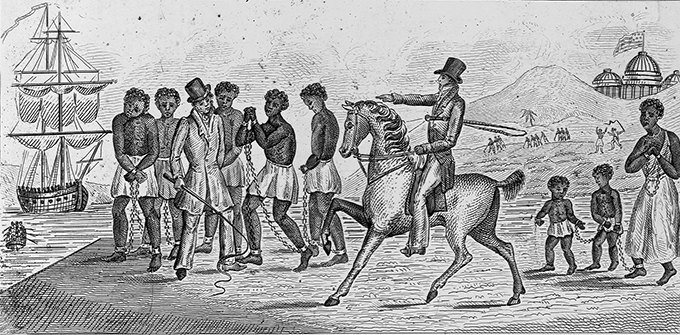
Whenever I tell high school students in classes I visit that I appreciated learning about slavery as a child growing up in the Caribbean, they often look confused.
Why, they ask, did I like learning about slavery given that it was so horrible and harsh? How could I value being taught about something that caused so much hurt and harm?
That’s when I tell them that my teachers in St. Thomas – and my fourth grade history textbook – didn’t focus just on the harsh conditions of slavery. Rather, they also focused on Black freedom fighters, such as Moses Gottlieb, perhaps better known as General Buddhoe, who is credited with leading a nonviolent revolt that led to the abolishment of slavery in the Danish-ruled West Indies on July 3, 1848. The historic date is now observed and celebrated in the United States Virgin Islands as Emancipation Day.
The holiday – and the lessons I learned about it – instilled in me a sense of cultural pride and gave me a better appreciation for the sacrifices that Black people made for freedom. It also encouraged me to always push on when faced with challenges.
The reason I bring this up is because I believe Juneteenth – which commemorates the date in 1865 when Union troops notified the last remaining slaves in Texas that they were free – holds similar promise for Black students throughout the United States.
Students often tell me that they’re not learning much about slavery beyond the suffering and harsh conditions that it involved. As a historian who specializes in how slavery is taught in K-12 classrooms, I believe there are several ways educators can incorporate Juneteenth into their instruction that will give students a broader understanding of how Black people resisted slavery and persevered in spite of it. Below are just a few.
Start early, but keep it positive
As early childhood experts assembled by the National Museum of African American History point out in a guide they created to help develop lessons about Juneteenth, children in the U.S. will probably hear about slavery by age 5. But lessons about slavery at that age should avoid the pain and trauma of slavery. Instead, the lessons should celebrate and teach stories of Black culture, leadership, inventions, beauty and accomplishments. This, the authors of the guide say, will better equip children to later hear about, understand and emotionally process the terrible truths about slavery.
“Juneteenth events can be wonderful opportunities to introduce the concepts of slavery with a focus on resilience and within an environment of love, trust, and joy,” the guide states.
Focus on Black resistance
Many Juneteeth celebrations not only commemorate the end of slavery, but they also honor the generations of Black men and women who have fought to end slavery and for racial justice. As Black history education professor LaGarett King puts it, Black people have always “acted, made their own decisions based on their interests, and fought back against oppressive structures.” Stressing this can help students to see that although Black people were victimized by slavery, they were not just helpless victims.
Juneteenth provides opportunities to acknowledge and examine the legacies of Black freedom fighters during the time of slavery. These freedom fighters include – but are not necessarily limited to – Frederick Douglass, Gabriel Prosser, Denmark Vesey, Harriet Tubman, Nat Turner and Sojourner Truth.
Connect Juneteenth to current events
Juneteenth can also be a way for educators to help students better understand contemporary demands for racial justice. That’s what George Patterson, a former Brooklyn middle school principal, did a few years back at the height of protests that took place under the mantra of Black Lives Matter.
Patterson has said he believes that when students study Juneteenth, they are “better equipped to understand the historical underpinnings of what’s going on in the streets and to put the demands being made in context.”
Teachers need not wait for Juneteenth to be included in textbooks in order to draw lessons from the holiday.
“If it’s not in the textbook, then we need to introduce it, we need to teach it,” Odessa Pickett, a teacher at the Barack Obama Learning Academy in Markham, Illinois, stated during an interview about teachers infusing Juneteenth into their lessons. “We need to bring it to the forefront.”
Educators can make Juneteenth about so much more than the end of slavery. Teaching lessons about the holiday offers an abundance of opportunities about what it means to fight for freedom and maintain a sense of self-determination in the face of oppression.
Author Bio: Raphael E. Rogers is a Professor of Practice in Education at Clark University
